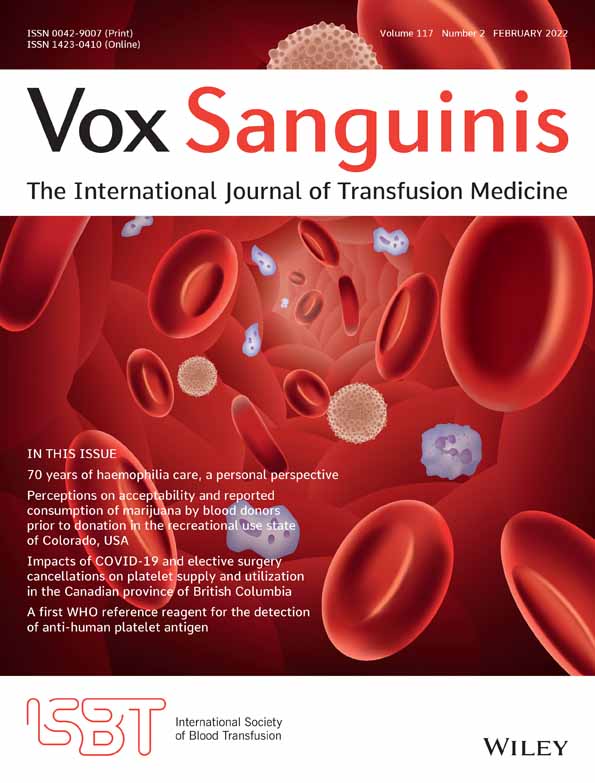A comparative study on perinatal outcomes of red blood cell–alloimmunized pregnancies with anti-RhD in combination and anti-RhD alone in China
Abstract
Background and Objectives
The advent of intrauterine transfusion (IUT) has improved the survival of severe foetal anaemia. The aim of this study was to compare the perinatal outcomes of red blood cell (RBC)–alloimmunized pregnancies with anti-RhD in combination and anti-RhD alone in China.
Materials and Methods
A retrospective study was conducted involving RBC–alloimmunized pregnancies with anti-RhD in combination and anti-RhD alone admitted to The First Affiliated Hospital, Sun Yat-sen University, between January 2007 and December 2019. Obstetric data and neonatal outcomes were compared.
Results
A total of 165 alloimmunized pregnancies were identified, with 32 pregnancies in the anti-RhD-in-combination group (25 pregnancies with anti-RhD + anti-RhC and 7 pregnancies with anti-RhD + anti-RhE) and 133 pregnancies in the anti-RhD-alone group. The anti-RhD-in-combination group had significantly higher frequency of IUTs than the anti-RhD-alone group (59.4% [19/32] vs. 30.1% [40/133]; p < 0.01). The postnatal frequency of top-up transfusions was significantly higher in the anti-RhD in combination group than the anti-RhD-alone group (90.6% [29/32] vs. 70.7% [94/133]; p = 0.02). There was no significant difference in the frequency of exchange transfusions (ETs) between the two groups (15.6% [5/32] vs. 17.3% [23/133]; p = 0.82).
Conclusions
Compared to alloimmunized pregnancies with anti-RhD alone, pregnancies with anti-RhD in combination with anti-RhC or anti-RhE have an increased requirement for antenatal IUTs and postnatal top-up transfusions but do not have an increased need for ETs.
CONFLICT OF INTEREST
The authors declare no conflict of interests.




